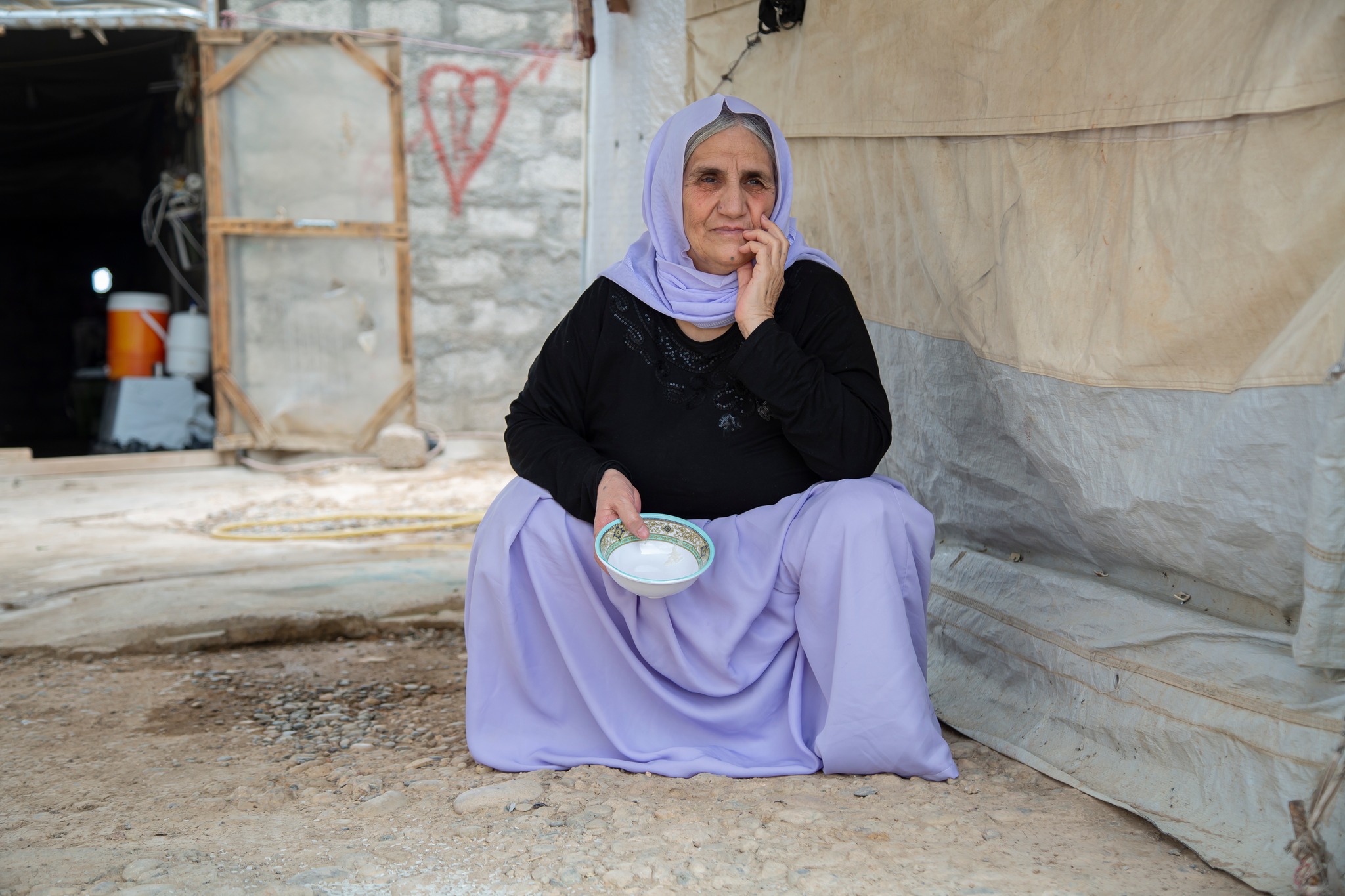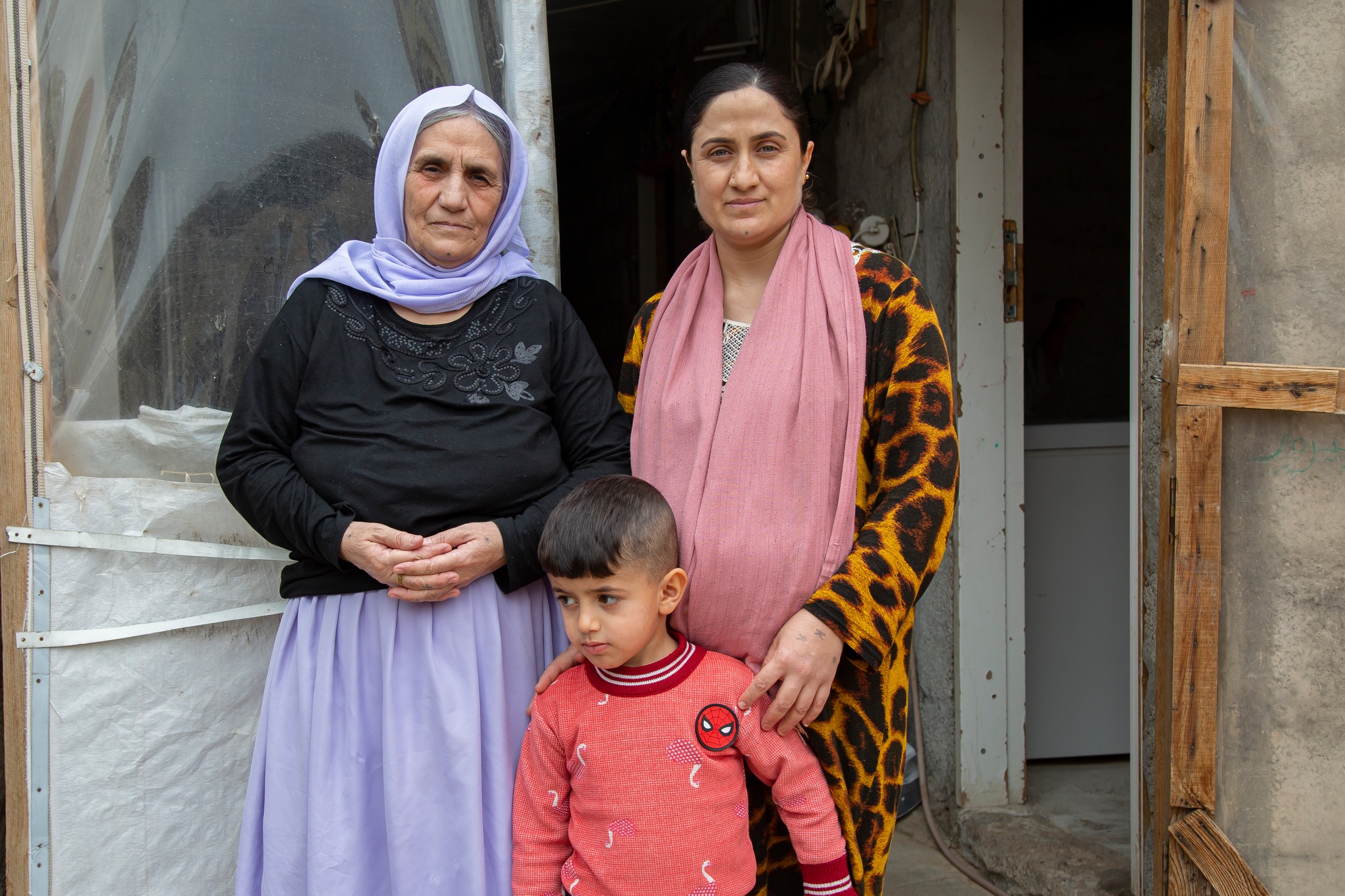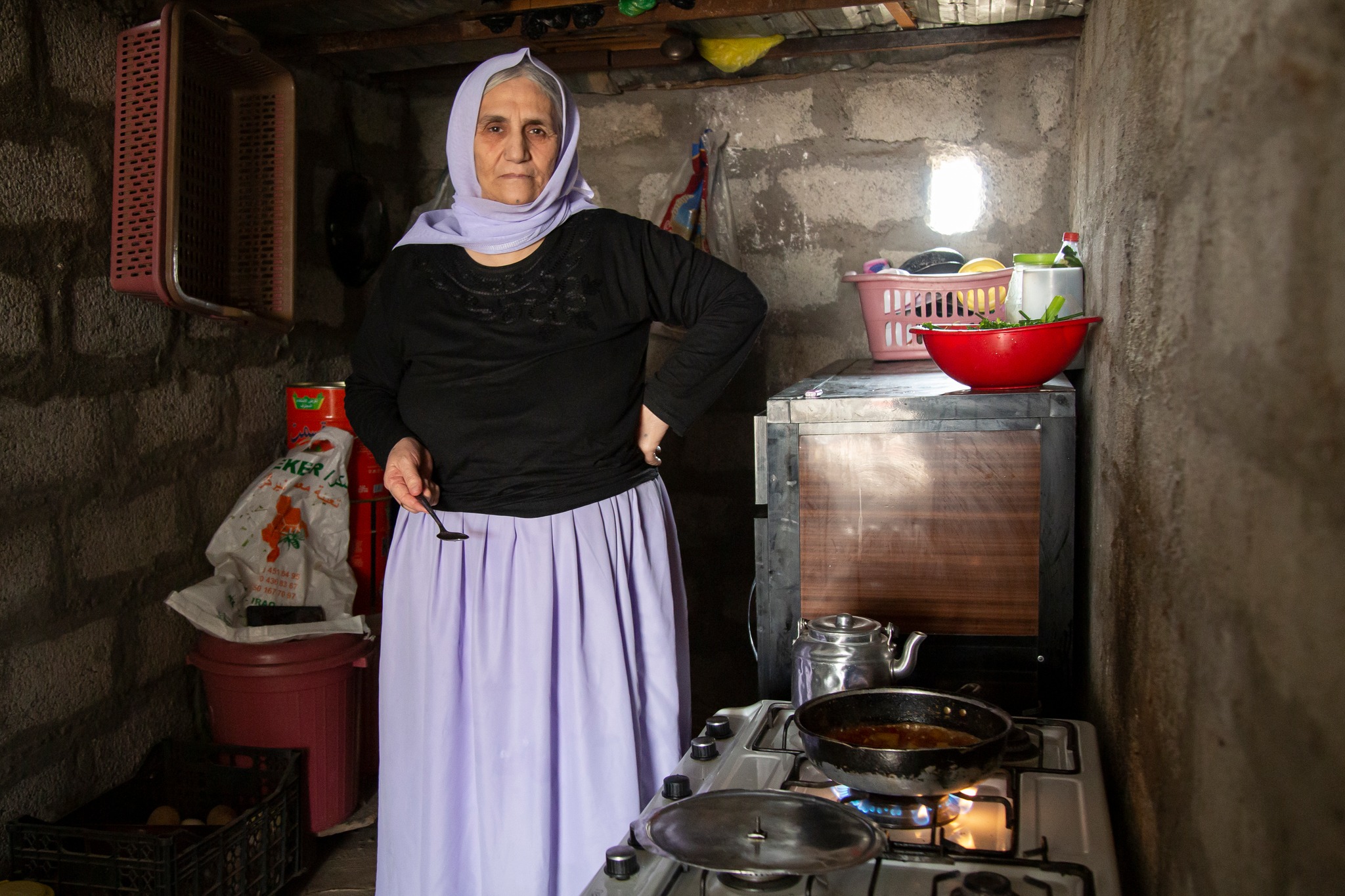This is how Khunav Khalaf, 55, from (Shingal) Sinjar describes her feelings around her decision to emigrate.
“The main reason we decided to emigrate was our fear of the Islamic State of Iraq and the Levant (ISIL). When they took over our areas in 2014, ISIL kidnapped my husband and two of my sons, and we did not know their whereabouts or whether they were still alive.
We left for Germany on 22 September 2015 with IOM’s support.
The trip was easy and smooth. We took a direct flight from Erbil, and when we arrived, things were ready for us because we had come legally and with the government’s knowledge and approval. They even took us on tours to visit some of Germany’s cities! However, I could not adapt to the country or feel happy. I longed for my homeland and missed my family. Homesickness was killing me.
The Government had promised that when I arrived, I would receive counselling for my post-traumatic stress disorder, which I had developed since my husband and sons had disappeared. The authorities lived up to their promise; I attended counselling sessions, but I was still not comfortable with anything. I was constantly worried, and the desire to go back to my village never went away. I felt that Europe was suitable for young people, but not for me. Visiting for tourism would have been one thing but living there was another.
“I was not happy with my daughter-in-law and her children’s request that I go with them to Germany. I wanted to stay close to my family and in the village where I was born and had always lived.”
Shingal, located 120 west of Mosul, on the border of Iraq-Syria, is home to the Ezidi minority targeted by Islamic State in Iraq and Levant ISIL group in August 2014 and one of the disputed territories between Baghdad and Erbil.
Seized in August 2014 by IS militants whom accused the Ezidis of being “heretics,” Shingal has been the scene of tragedy: a genocidal campaign of killings, rape, abductions and enslavement, amounted to genocide lately acknowledged by parliaments of Belgium and Netherlands.

Khunav was thrilled once returned home and reunited with part of her family memebrs and relatives in her village. By IOM
I would walk around the streets crying. I could not stop. I decided to tell the German authorities that I wanted to return to my home village. Five years had passed, the pain had not eased, and all I wanted was to die in my country, not of sadness away from home.
I returned to Iraq and was thrilled to finally be back in my village – I just missed my grandchildren, who stayed in Germany. I wish I could be in both places, in both worlds. I also miss my daughter, whom I managed to bring to Germany three months after we got there. ISIL had kidnapped her, but we obtained her release by paying a ransom of USD 15,000.
Nevertheless, the joy of being back outweighed everything else. When I came back to Iraq, I felt that my soul had returned to my body. I saw my other daughters and their children, and I went to visit our close family members and friends. It was like a big family reunion.
Now I live among friends and relatives in complete comfort, and I feel that my heart is where it should be because I am with my family. I never wished for more than that, and I do not intend to emigrate again. It’s true that I miss my grandsons and daughter, but I hope that they will come and visit me here in our village.

Khunav: I went to visit our close family members and friends.
The surviving Ezidi community fled IS controlled hometown to safer-heaven IDP camps on Shingal Mount and in the adjacent northern Kurdistan region where tens of thousands still live in tens of camps for Internally Displaced Person IDP.
Thousands of Ezidi women, girls and kids were enslaved and taken as sex slaves. KRG office for rescue of missing Ezidis says 6,417 Ezidis were enslaved by IS when it took over Shingal in 2014 and 2,700 of them have been brought to unknown destiny.
The fight against IS has come to end on November 13, 2013 yet it has caused severe damage to thousands of houses, and the infrastructure of the town which still misses proper power and water supply, adequate schools and standard healthcare.
Out of half million population, over 350,000 Ezidis fled Shingal to Kurdistan region and Shingal Mount. About 100,000 migrated to Europe, USA, Canada and Australia and over 100,000 are still living under tents in tens of camps for Internally Displaced Persons IDP in the adjacent Kurdish region.





